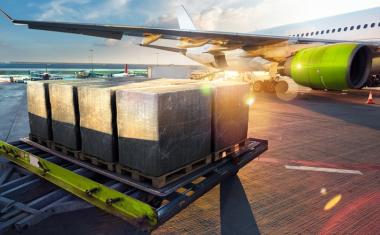Exxon's PNG LNG Project Costs Balloon to $19 Billion
Exxon Mobil said it faces a $3.3 billion spike in costs at its LNG project in Papua New Guinea, the latest Asia-Pacific project to be hit by cost overruns as competition is set to grow from new gas supplies coming on tap in North America and Africa.
The more than 20% jump in costs to $19 billion was blamed on unfavourable foreign exchange rates and delays caused by disgruntled workers and landowners, and comes after costs to develop liquefied natural gas (LNG) projects in neighbouring Australia to supply the Asian market have also shot up.
Exxon told its partners in a letter published on Monday the project remained on schedule for start-up and delivery of gas in 2014 and forecast production capacity had been increased by 5% to 6.9 million tons per year.
The PNG LNG project is the impoverished nation's biggest-ever resources development and could lift GDP by 20%.
Papua New Guinea has struggled to attract foreign investment to exploit its abundant natural resources due to corruption and unclear regulations.
Shares in the two Australian partners in the project, Oil Search and Santos, tumbled 5.2% and 2.4%, respectively.
"International groups partnering with Australian companies into these projects are starting to feel the high cost environment," Peter Esho, chief Market analyst at City Index Group Sydney, said in a note.
LNG plants are notorious for running overbudget and missing schedules. In Australia, three out of seven projects under construction have announced hikes of an average of over 20%, while a fourth is conducting a cost and schedule review.
Developments in Australia have primarily faced cost jumps due to increased labour costs, a high Australian dollar, and stiff competition for resources.
Strong demand from Japan and other Asian countries has helped lift the prospects of LNG projects in Asia-Pacific, but competition is also heating up with new supplies set to emerge from North America and East Africa.
Oil Search said the increase in the final estimated costs at PNG LNG was "considerably beyond the upper end" of its expectations.
"Oil Search intends to fully review the revised estimates and is committed to working with the operator to seek to mitigate these estimated cost increases," Oil Search Managing Director Peter Botten said in a statement.
The firm said it expected the increase would be funded in line with the project's existing finance terms of 70% by debt and 30% by equity contributions from the projects partners.
FX biggest part of the cost rise
Santos said it had ample liquidity to fund its higher share.
"With over $6 billion in cash and undrawn debt facilities, Santos is in a strong position to fund all of its capital programs," Santos Chief Financial Officer Andrew Seaton said.
"Even including the higher costs, PNG LNG remains a highly robust economic project."
Exxon said that foreign exchange was the single biggest cause of the cost increase at $1.4 billion at PNG LNG.
The Papua New Guinea kina has risen 20% against the U.S. dollar in the last 19 months, while the Australian dollar has held above parity to the U.S. currency.
Delays from work stoppages and land access issues had pushed up construction and drilling costs, adding $1.2 billion to the total.
Landowner protests against the project this year prompted the government to deploy troops to "restore law and order", according to local media reports.
Also, the impact of above average rainfall for most of the last two years, was estimated to have added $700 million.
"Despite the cost increase, project economics are helped by the 5% increase in plant capacity and approximately 3% increase in commodity pricing since project funding in 2009," Decie Autin, PNG LNG Project Executive, said in a statement.
Exxon Mobil five years ago shelved a troubled PNG-to-Australia gas pipeline project after cost overruns pushed the cost of development to more than $3.5 billion. Exxon and its partners at the time said they would focus on more profitable gas projects in the country, including PNG LNG.
The energy major said last month it would make a decision on developing the Scarborough gas field, considered one of the toughest projects in Western Australia, around the second half of 2013. Exxon has said it will weigh the development of Scarborough and any other new LNG project against potential exports of cheaper North American LNG.






